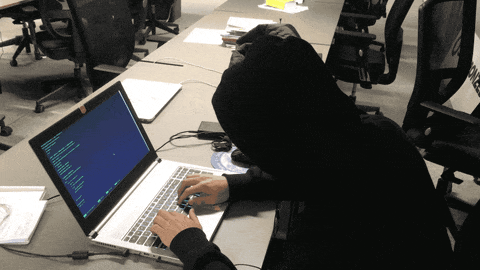
Jackson Henry, a teenager getting ready for Year 12 exams, doesn’t fit the typical image of a “hacker”.
In cybersecurity, Jackson is commonly called a “white hat hacker” or an “ethical hacker.”
“The term hacker is often associated with criminal activity, but it’s important to clarify that hackers can be ethical or unethical. We aim to identify and fix vulnerabilities while proactively avoiding potential threats,” Jackson said.
Jackson gained recognition from the United Nations at the age of 15 for discovering and reporting a misconfiguration in their system that led to the exposure of thousands of UN staff records.
The ethical hackers used the Vulnerability Disclosure Program (VDP) to report the issue to the United Nations.
The sharp increase in cybercrime has affected many Australians, indicating the urgent requirement for more individuals like Jackson who aspire to work in cybersecurity.
As per a report from cybersecurity company CyberCX, the country’s evolving security needs will require 30,000 more workers over the next four years.
According to Alastair MacGibbon, the chief strategy officer of CyberCX, it’s essential to involve diverse Australians in the fight against cybercrime. Their skills can be different from those of hackers like Jackson Henry.
Mr MacGibbon emphasised his focus on increasing the number of women in the industry, which currently comprises about 80% of men.
Jackson suggests that the Australian government should increase its utilisation of vulnerability disclosure programs and establish bug bounties for public sector entities.
The US government utilises vulnerability disclosure and bug bounty programs to incentivise ethical hackers to report vulnerabilities.
As stated by Clare O’Neil, the Minister for Cyber Security, the government is evaluating the need for extra incentives to motivate the ethical hacking community to disclose security vulnerabilities.
Ms O’Neil further adds that the government is investigating diverse strategies to address the present and impending cyber skills and workforce challenges Australia faces.

More Stories
Killnet and AnonymousSudan Collaborate to Launch Cyber Attacks on Western Organisations
In recent news, it has been reported that two Russia-sympathetic hacktivist groups, Killnet and AnonymousSudan, have allegedly launched a series...
$4000 Gone In An Instant: Mother Defrauded in Facebook Marketplace Car Deal
A mother of four is warning others to be cautious after believing she had purchased a safe and dependable car...
Shocking Scam: Sydney Family Loses $200K Life-Savings in Suncorp Spoofing Fraud
A family from Sydney has lost their life savings worth $200,000 due to a fraudulent scam. Peter and Madison, who...
Mysterious Money Transfer Leaves Couple Speechless: How They Got an Unsolicited $4000
A young couple in Melbourne claims their bank is making up a personal loan they do not understand. Ashley and...
Phishing + AI + Voice Cloning= Big Trouble: The New Way Criminals are Stealing Your Money
New Alert: Criminals use AI and voice cloning to trick you out of your money. Earlier this year, Microsoft unveiled...
‘Impossible to Spot’ Delivery Scam Email Targets Australia Post Customers – Don’t Fall Victim!
Unsuspecting shoppers should be cautious as a parcel delivery scam that is hard to distinguish targets Australia Post customers. Email...


